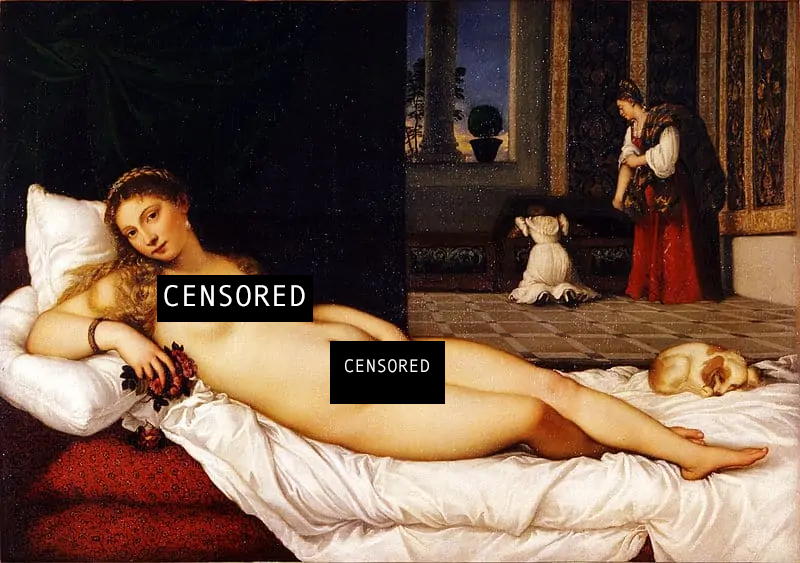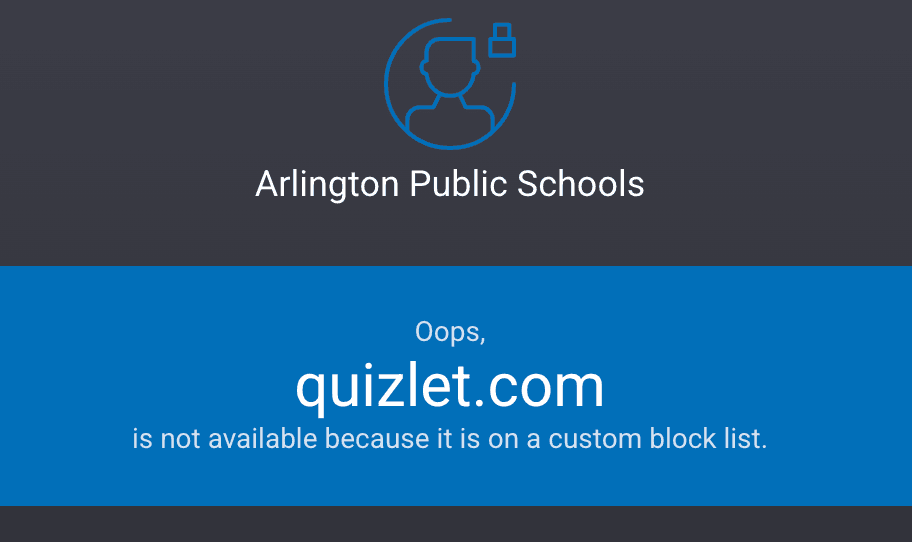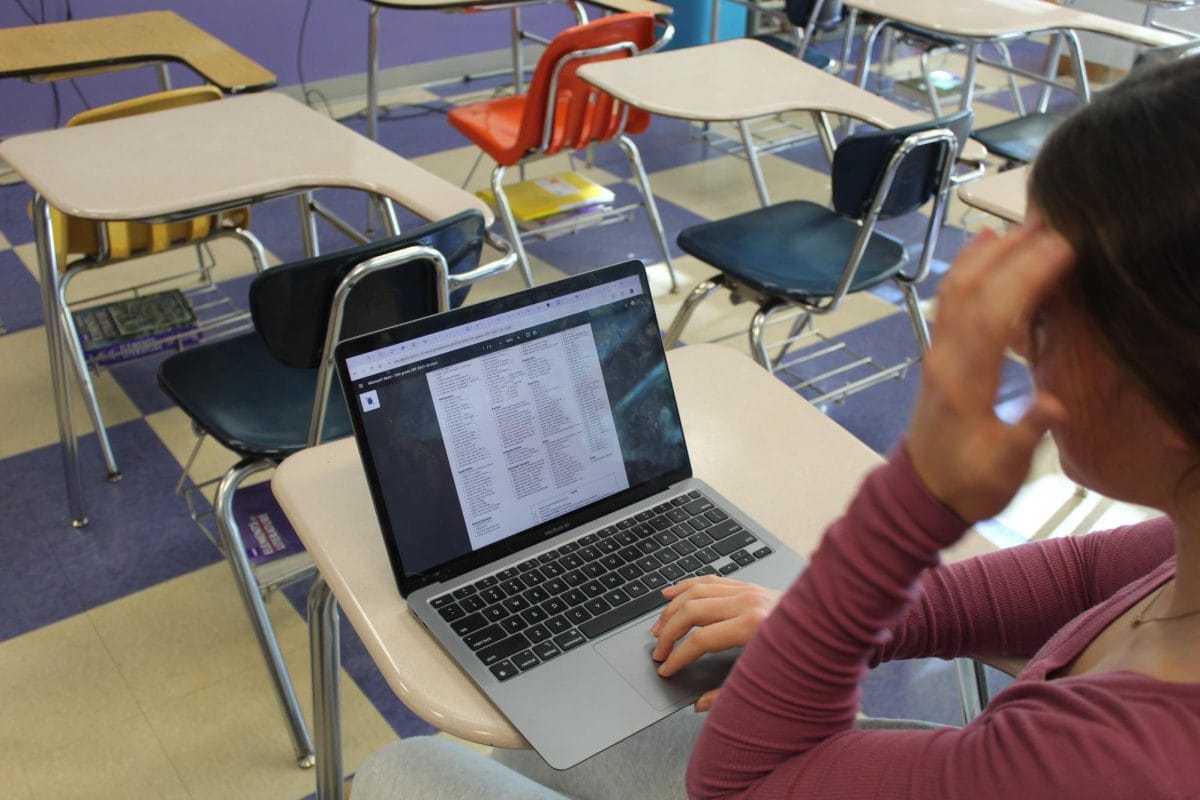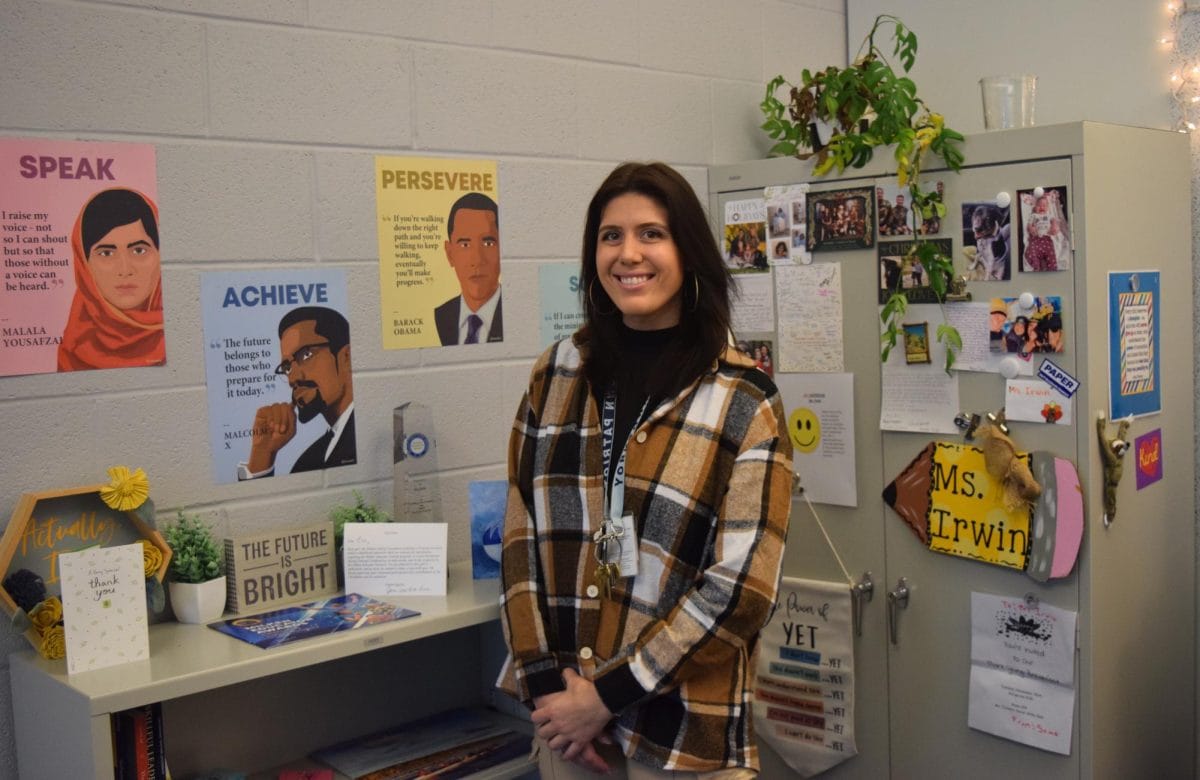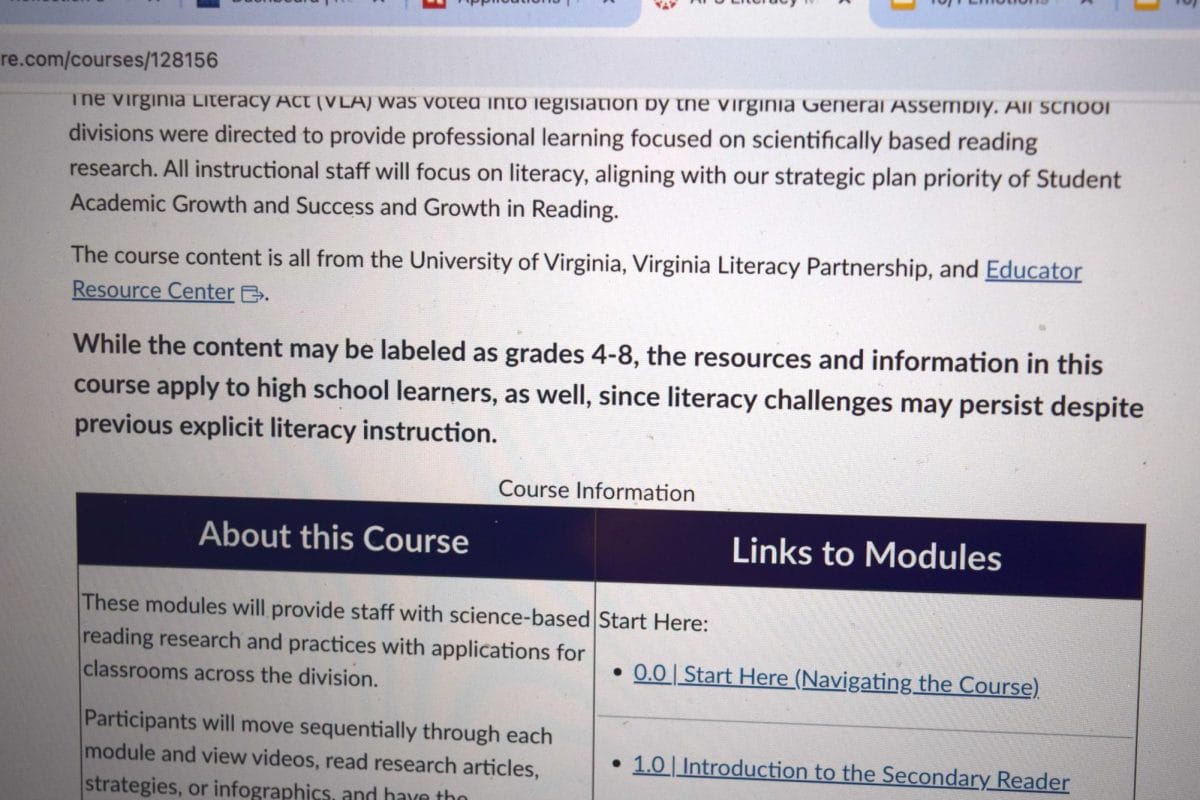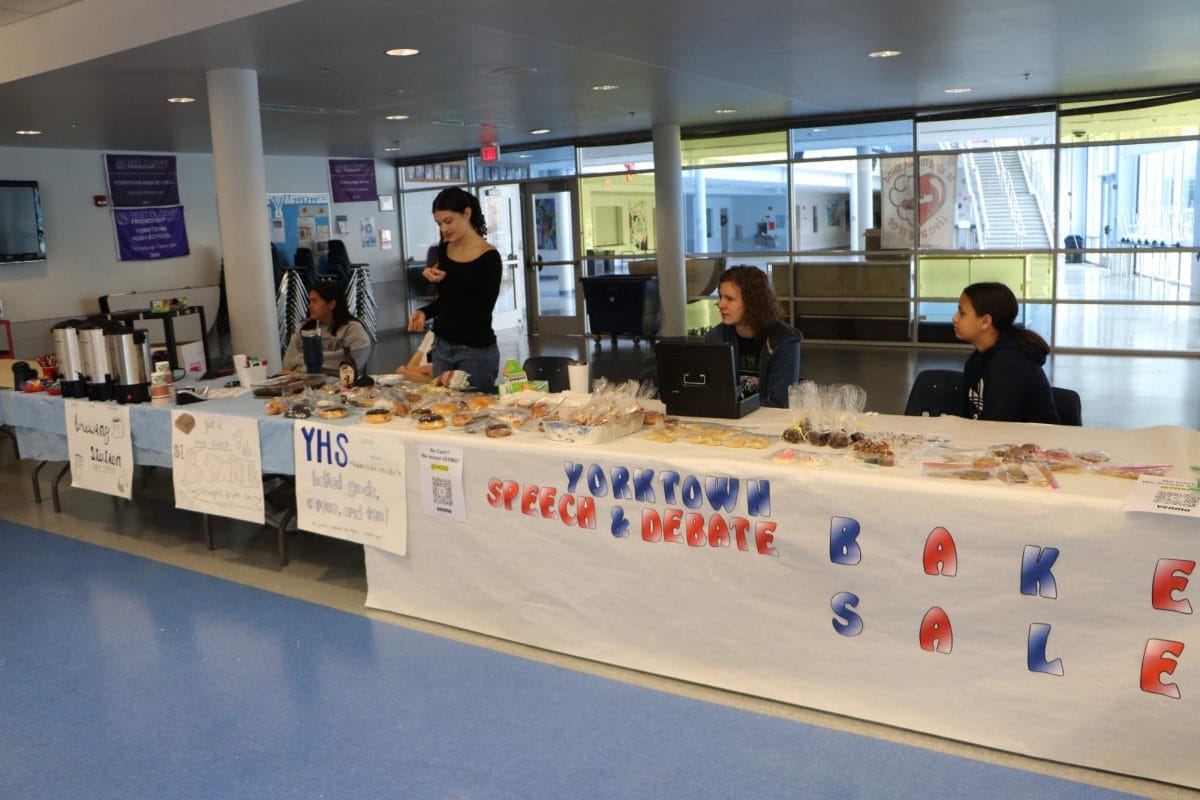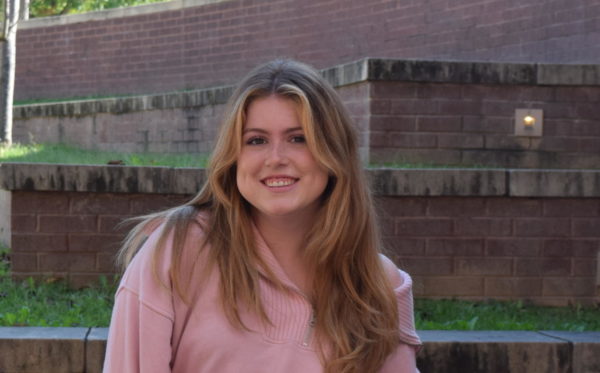Governor Glenn Youngkin implemented a new sexual content policy in Virginia schools last month. The policy, published by the Department of Education, requires teachers to reference a list of all instructional materials that contain “sexually explicit” content.
The list will be handed down from individual school administrations. Teachers will be required to notify parents at least 30 days before the material is introduced. Any families who feel uncomfortable with the content will then be provided with alternative materials.
Sarah Putnam, Executive Director of Curriculum and Instruction for APS, described how this new policy was implemented into APS’ pre-existing system.
“Since the policy was updated, we added an amendment to our I-9 policy, which was already in place. It’s how we select and review instructional resources in Arlington. Our director of policy explained the best way to update our own system and be in alignment with Virginia’s guidelines,” Putnam said.
The core idea behind the policy is that schools will begin deferring to parents to determine if content is appropriate for their children. Rachel Sadauskas is an APS teacher and parent, and is among those that feel this step is unnecessary.
“I think it’s important for parents to be informed. Personally, at the beginning of the year in the syllabus that I hand out, I list what I am going to be teaching for the year,” Sadauskas said.
If a teacher’s syllabus already outlines their content for the year, why is an additional email needed for any material?
This policy covers any content used by one or more students for an educational purpose. As cited by the guidelines, Section 2.2-2827 of the Virginia Code defines “sexually explicit content” as “any description, picture, photograph, drawing, motion picture film, digital image or similar visual representation depicting sexual bestiality, a lewd exhibition of nudity, sexual excitement, sexual conduct, or sadomasochistic abuse, coprophilia, urophilia or fetishism.”
By the beginning of each school year, teachers will be provided a list of identified materials that may be considered sexually explicit. If any of their curriculum appears on the list, they will have to notify parents. For those who are uncomfortable with the content, teachers will provide different instructional resources before the material is covered.
“The goal there would be to choose another text that shares the same theme. The student who is reading the alternative text could still be engaged in conversations about the themes of the unit, and would still be included in the class,” Tracy Maguire, the chair of our school’s English Department, said.
For this year, our school’s English Department received their list of “sexually explicit” materials on February 1st. The list flagged materials seen less frequently in schools, but it also identified the novel Lord of the Flies for containing “sexual bestiality.” This novel has been taught in schools for decades, alongside Romeo and Juliet and The Catcher in the Rye, and only now are these classic pieces of literature being called out for displays of sexuality.
The biggest supporters of the new policy appear to be parents, due to the oversight it provides. If their student feels uncomfortable with a lesson, teachers are now liable to provide alternative materials.
However, concerns have surfaced regarding the intentions behind this new law. Next to extreme examples of fetishization and sexual conduct, homosexuality is also flagged as being potentially too explicit for students.
Pride Liberation Project is a student-led advocacy group based in Fairfax County. The organization focuses on advocating for LGBTQIA+ students throughout Virginia, and has voiced concerns that LGBTQIA+ relationships will be considered “sexual content” and further restricted. Pride Liberation Project has called for the Department of Education to “develop guidelines that explicitly state that instruction about LGBTQIA+ people is not inherently sexual.”
Putnam assured that our school system has been conscious of this.
“We had conversations to make sure that as we follow Virginia code and follow this policy, we are completely inclusive of all perspectives,” Putnam said.
APS maintains that they would never want the policy to suppress any viewpoints or sexual orientations. This policy is allegedly meant to make classrooms safer and more comfortable for students, not to take representation away from anyone.
However, teachers have also expressed confusion regarding the guidelines of this new law.
“It is very ambiguous right now from the teacher’s side of things. For example, I was just watching a film that I’m showing in the third quarter. There’s nothing sexually explicit within it, but there’s implied sex. And so it’s that gray area,” Sadauskas said,
Another area of doubt for teachers is the possible ramifications for failing to comply with the 30-day notification requirement.
“In the event the 30-day notification wasn’t completed, we would work to identify the reason and to communicate with parents/guardians about the use of the instructional material. We’d also put a plan in place to ensure the staff member is able to address the requirement moving forward,” Putnam said.
On top of their own uncertainties, teachers have also voiced concerns about how this new practice will affect the mindset of parents.
“In terms of this specific policy. I think the way that it reads is kind of alarmist. Many of our texts do not include anything explicit, but just references to sex and sexuality. The policy leads parents to believe that there is explicit and graphic detail when there is not,” Maguire said.
In fact, students and teachers alike have expressed a concern at the lack of regard for students in this policy. Many middle and high school students are just beginning to discover what they feel comfortable with, and this growth is stunted when students are shielded from difficult themes.
“I include the students in the emails I send to the parents because I don’t want to leave the students out of this conversation,” Sadauskas said.
The introduction of this policy has been rocky at best for many local students and teachers. However, it is clear that APS aims to maintain a respectful and open environment between teachers, parents, and administration, while upholding Virginia policy to the best of their ability.
As students, parents, and staff alike move forward under this policy, it will be more important than ever to carefully monitor the line between protection and censorship.





































